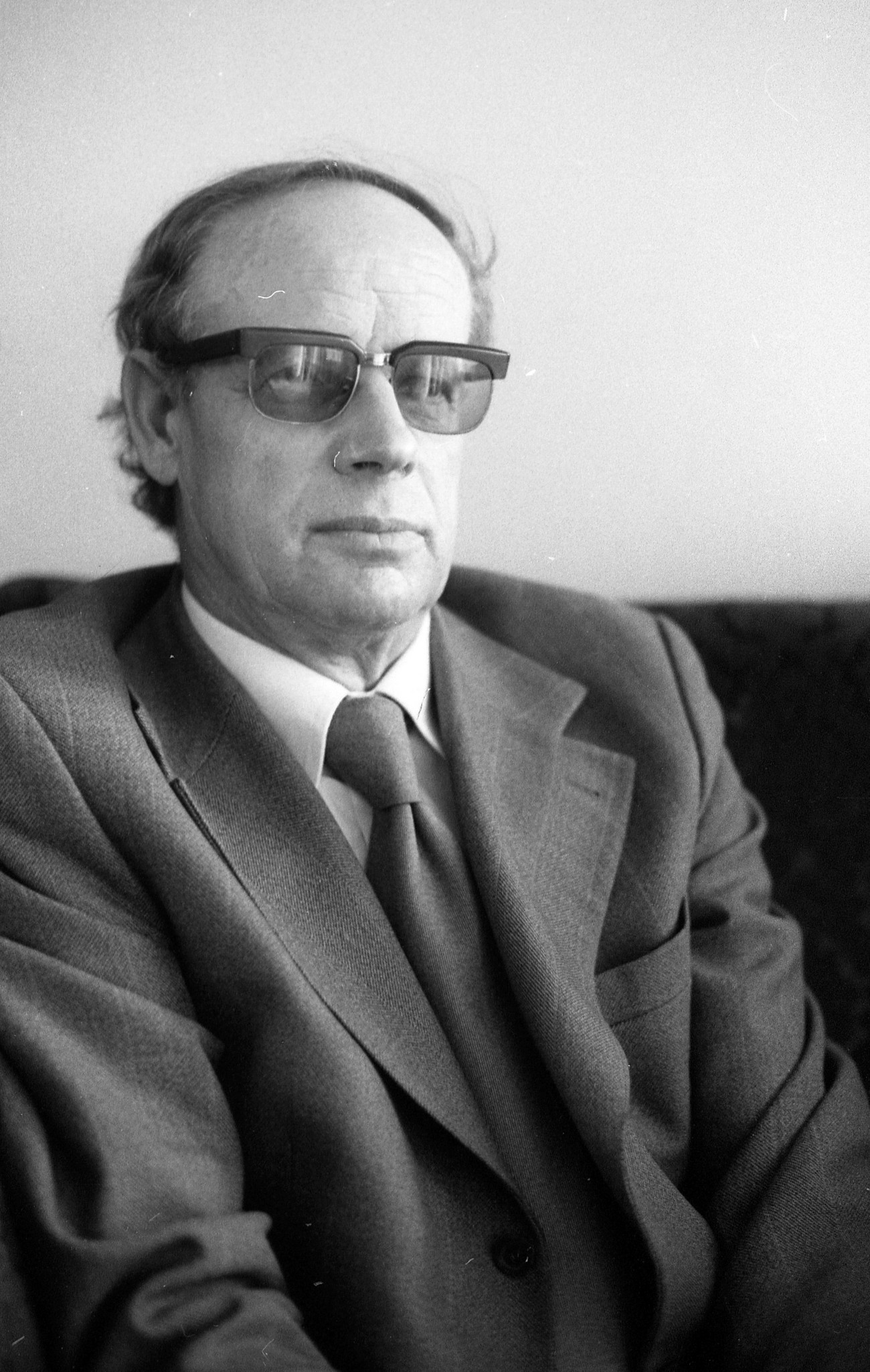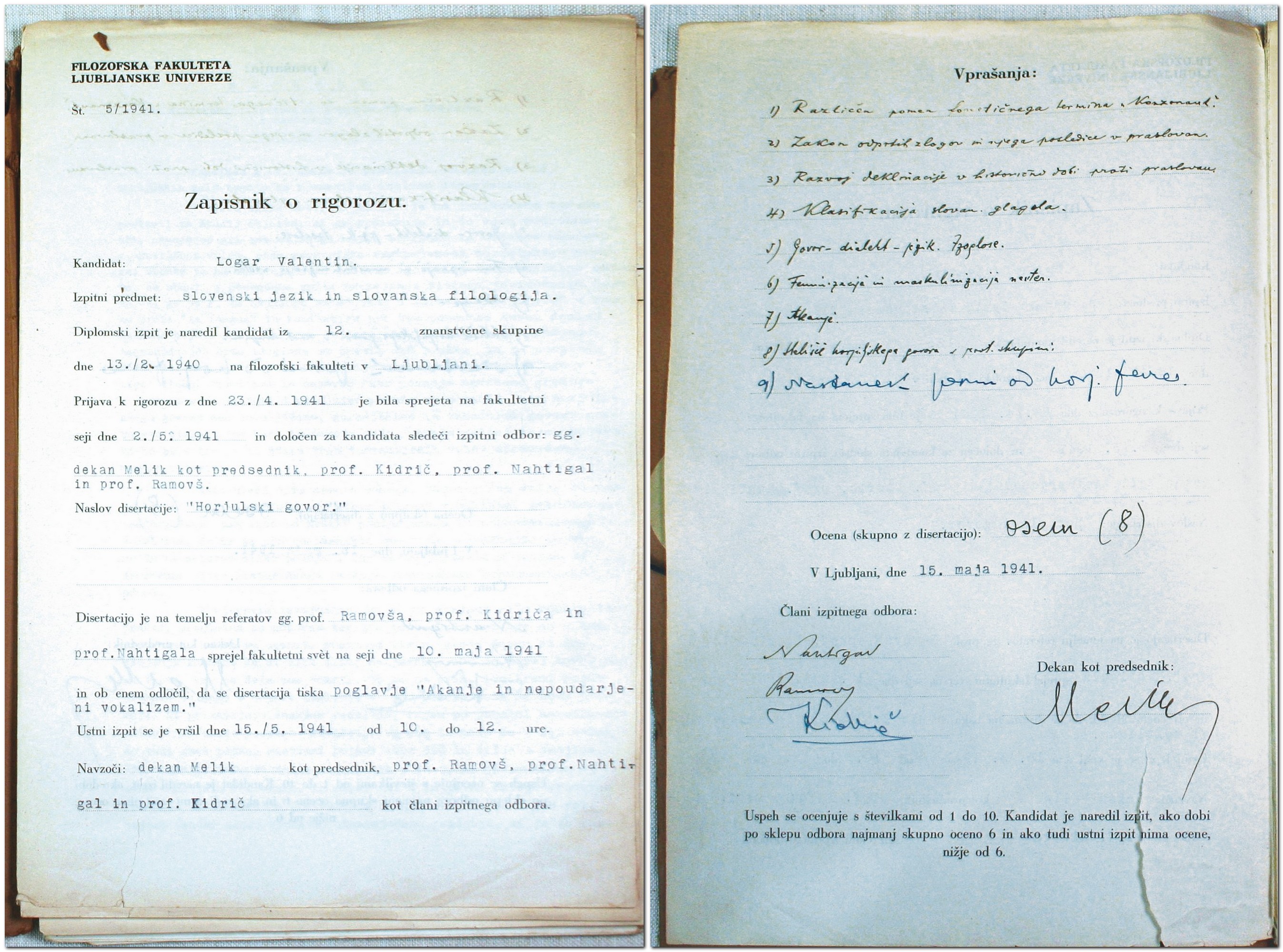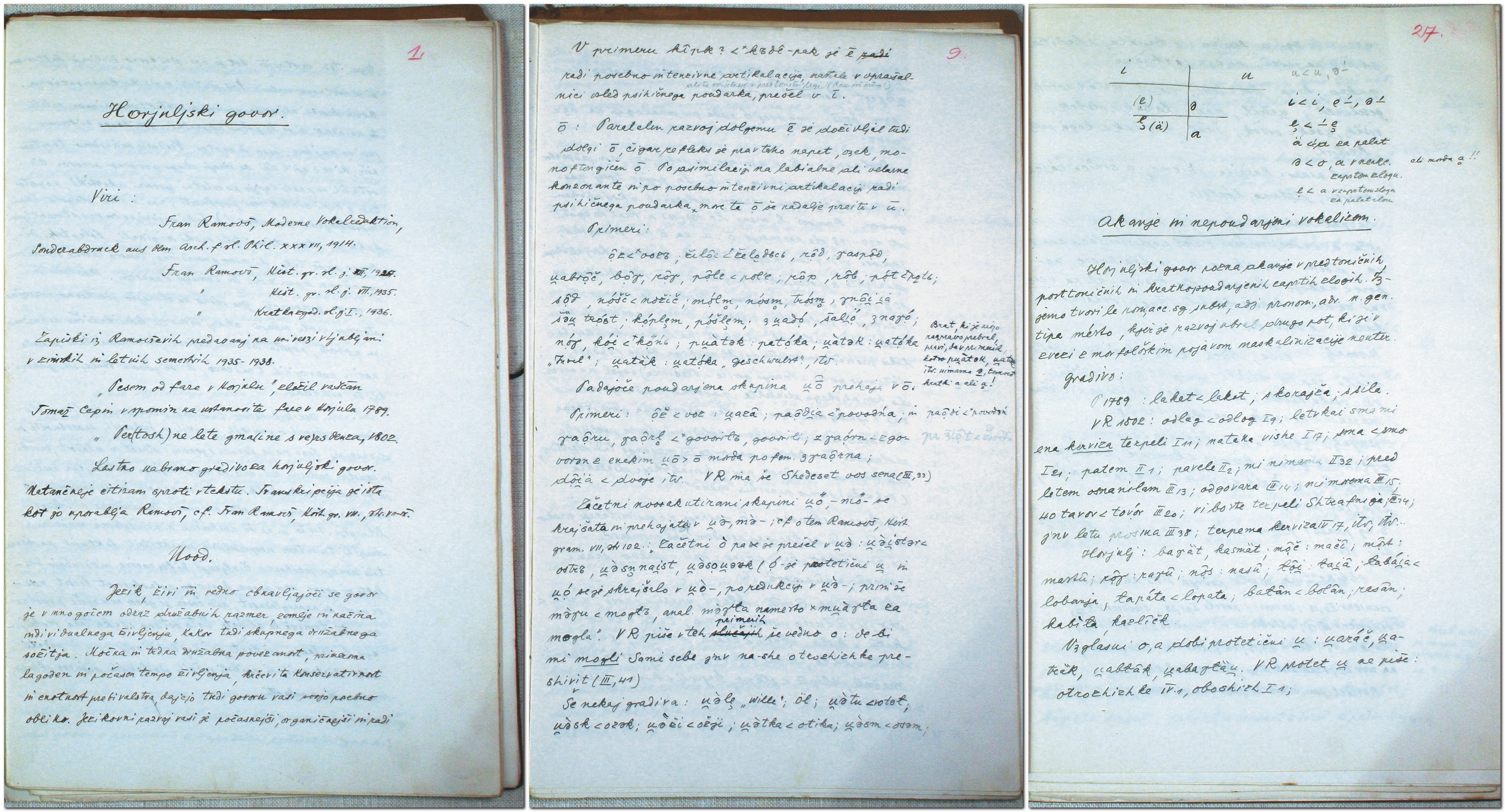
TINE (VALENTIN) LOGAR, linguist (1941)
The Horjul Dialect. Mentor: Fran Ramovš. Promotion: June 13, 1941
He was imprisoned during the war due to collaboration with the Liberation Front. His second stint in prison came in 1948 for Informburo persecutions. He started his research career in 1947 at the Institute of the Slovenian Language at SAZU, and from 1958, he passed his knowledge to the students of the Faculty of Arts as a lecturer in dialectology and the historical grammar of Slovene language. His research is an important contribution to the Slovenian dialectology and linguistic history since he is credited with recording over 200 different Slovenian dialects.

Author: Miško Kranjec. Source: Museum of Contemporary History Slovenia

The exam was taken after the outbreak of World War II on the Slovenian territory, on May 15, 1941. The board of examiners included: Anton Melik, Fran Ramovš, Rajko Nahtigal in France Kidrič. Source: Archive of the Faculty of Arts, doctorate folder of Valentin Logar.
Tine Logar, son:
My father, Tine Logar, one of the greatest Slovenian linguists, was fortunate enough to grow professionally with Dr. Fran Ramovš, who directed him to research Slovenian dialects. He is perhaps the only person to have recorded more than two hundred Slovenian dialects so far, covering the country far and wide: on foot, by bicycle or motor, creating a dialect research network that is still active. He lived through very difficult times in his life. He was a member of the resistance movement from April 1941, the very beginning; a prisoner in Italian camps accused of being a traitor; and an innocent victim of Informbiro. He spent months on Goli otok without a trial. Neither him nor mother, dr. Bo ža Sernec Logar, who was among the first five doctors to join the Liberation Front, received recognition for their role in organizing resistance until the independence. Mother stood by father's side all the time, preventing the torture of Goli otok to break him down completely. He found joy in working with students, socializing with colleagues at ZRC SAZU, and his family.

Excerpts from the manuscript of the doctoral dissertation. The chapter "A-ing and unstressed vocalism" was the only one that was printed. Source: Archive of the Faculty of Arts, doctorate folder of Valentin Logar.